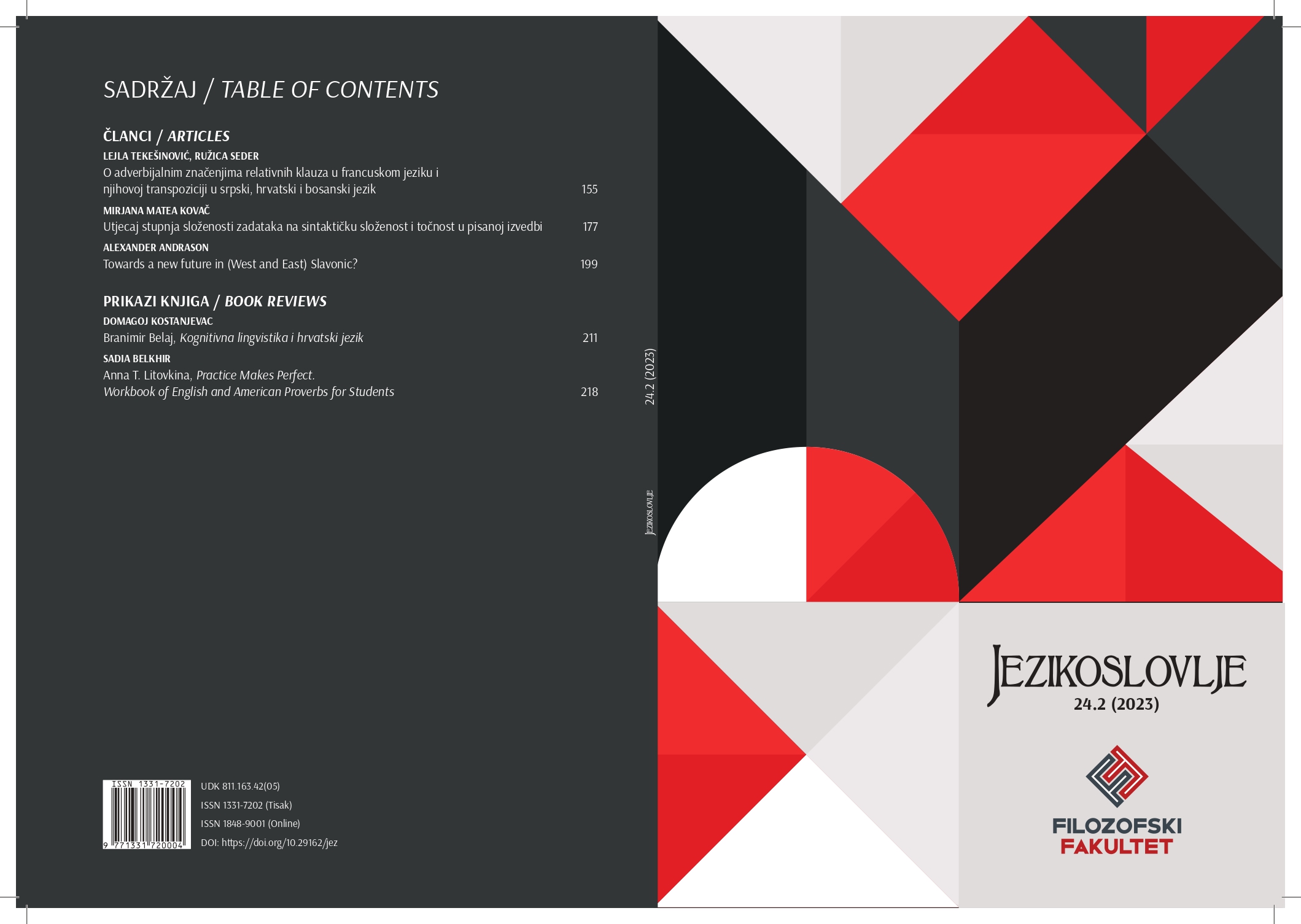Utjecaj stupnja složenosti zadataka na sintaktičku složenost i točnost u pisanoj izvedbi
The effect of the degree of task complexity on syntactic complexity and accuracy in written performance
Author(s): Mirjana Matea KovačSubject(s): Language and Literature Studies, Foreign languages learning, Theoretical Linguistics, Syntax
Published by: Filozofski fakultet, Sveučilište Josipa Jurja Strossmayera, Osijek
Keywords: task complexity; resource-directing variables; resource-dispersing variables; syntactic complexity; grammatical accuracy; interlanguage;
Summary/Abstract: The aim of this paper was to critically reflect on the results of previous research on the effects of task complexity on various aspects of written performance in a foreign language and deepen the knowledge about the ways of manipulating different task conditions. Also, the goal was to gain a better understanding of the measurement variables used to quantify syntactic complexity and grammatical accuracy. According to Robinson's model, the most prominent model for the effect of task complexity on performance, a more complex task will result in greater syntactic complexity and grammatical accuracy, because attention resources are primarily directed towards the functional needs of task performance. The significance of this model, compared to others, is reflected in the seemingly clear distinction between cognitive factors on the one hand, and all other possible factors influencing the outcomes in spoken/written performance. Although it is difficult to dispute the influence of task complexity on written performance in a foreign language, numerous studies on the mentioned issue have resulted in very different and mutually contradictory conclusions. The reasons can be found in inconsistencies in methodological procedures, inconsistent manipulation of the implemented resource-directing variables, an extremely large number of different measurement variables, and the unconducted evaluation of differences in cognitive complexity between tasks in a larger number of studies. The theoretical importance of this paper is primarily reflected in the need to establish clear criteria for the design of pedagogical tasks of different complexity, and consequently, a positive effect on the syntactic complexity and accuracy of written performance in a foreign language.
Journal: Jezikoslovlje
- Issue Year: XXIV/2023
- Issue No: 2
- Page Range: 177-198
- Page Count: 22
- Language: Croatian

